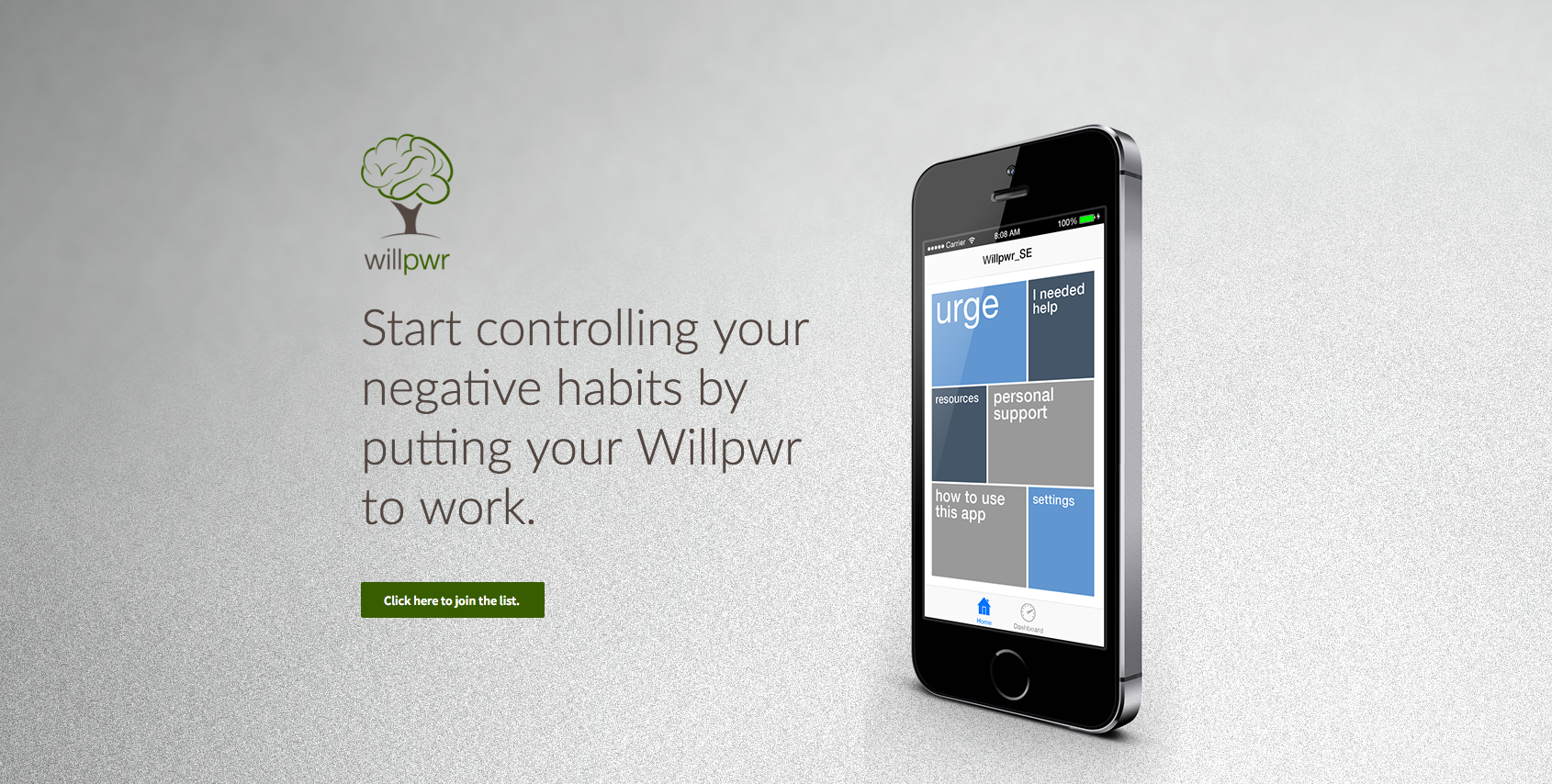Willpwr

I've been a psychotherapist for over thirty years. I have to say that I've been disappointed with the effectiveness of traditional therapies when it comes to ending addictions and negative habits. The knowledge is there: We've learned a lot about brain mechanisms underlying addictions, and researchers have worked out the psychological principles that are effective to end unwanted behavior. It's the delivery system that seems lacking. It’s one thing for a client to sit in an office and talk about their negative habit. It’s quite another thing altogether to be that client when he or she is caught up in a strong urge to continue with their habit. Advice from the therapist all too frequently goes right out the window at that point. That’s because when having an urge, people think differently than they do in the office.
When I retired from active clinical practice about three years ago, I decided that I had the time and energy to see what I could do about this disconnect between clinical advice given in the office and actually following it in the heat of the moment. So, I thought why not use the incredible versatility of smart phones to give on the spot advice, motivation, training, confidence and clear-thinking exactly when it is needed? In fact, with a smartphone, we could do even better than that., We could program the smartphone to actually learn when and where urges were happening for an individual and help them anticipate high risk while their thinking was still clear. And just as importantly, with a few simple questions, we could determine with that smartphone what some of the major triggers were that were causing those urges so users could do something about the underlying causes of their habit. And of course, we knew from the outset the importance of keeping any data the app generated completely confidential, available only to the user.
After nearly four years of research, programming, and determining the best ways to present strategies to individuals who are caught up in the moment with their urges, our team believes we’ve found a way to help. We have just started beta-testing our first app, Willpwr+SE, which addresses problems of sexual excess. In the near future, we’ll begin beta-testing Willpwr+EE, tailored for emotional eating issues. Further down the line, we’ll tackle an app for problem gambling. You can learn more about our plans at www.willpwr.io.
Our apps don’t replace professional help, but we think they augment and expand the possibilities available to users, since accurate advice and informed strategies are offered at precisely the time people need that extra help and motivation to resist.
So I’m extremely excited about what we’ve done and where we are with these efforts. More later.
